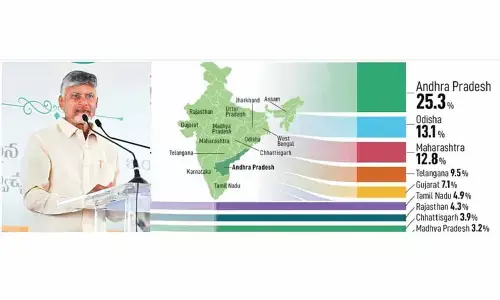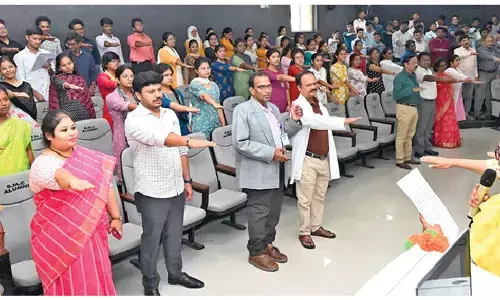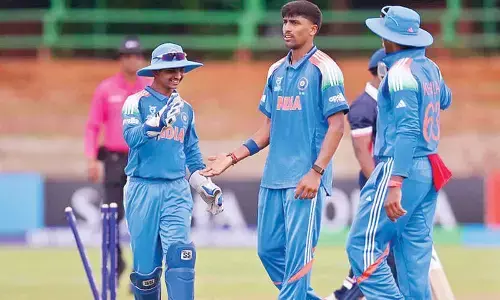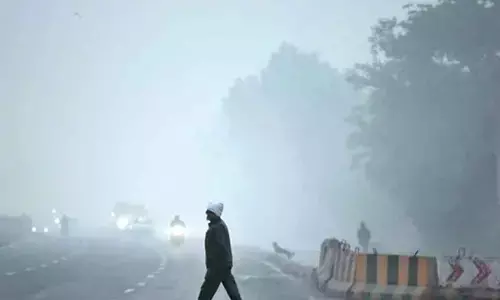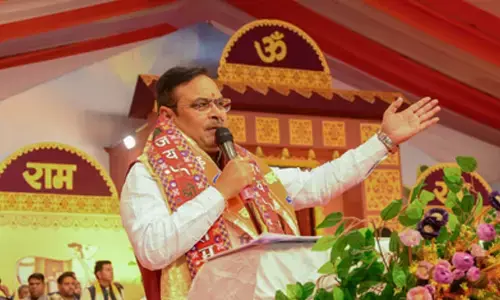Farmers Protest on Second day Over the Neglected Compensation in Bharath Mala Road
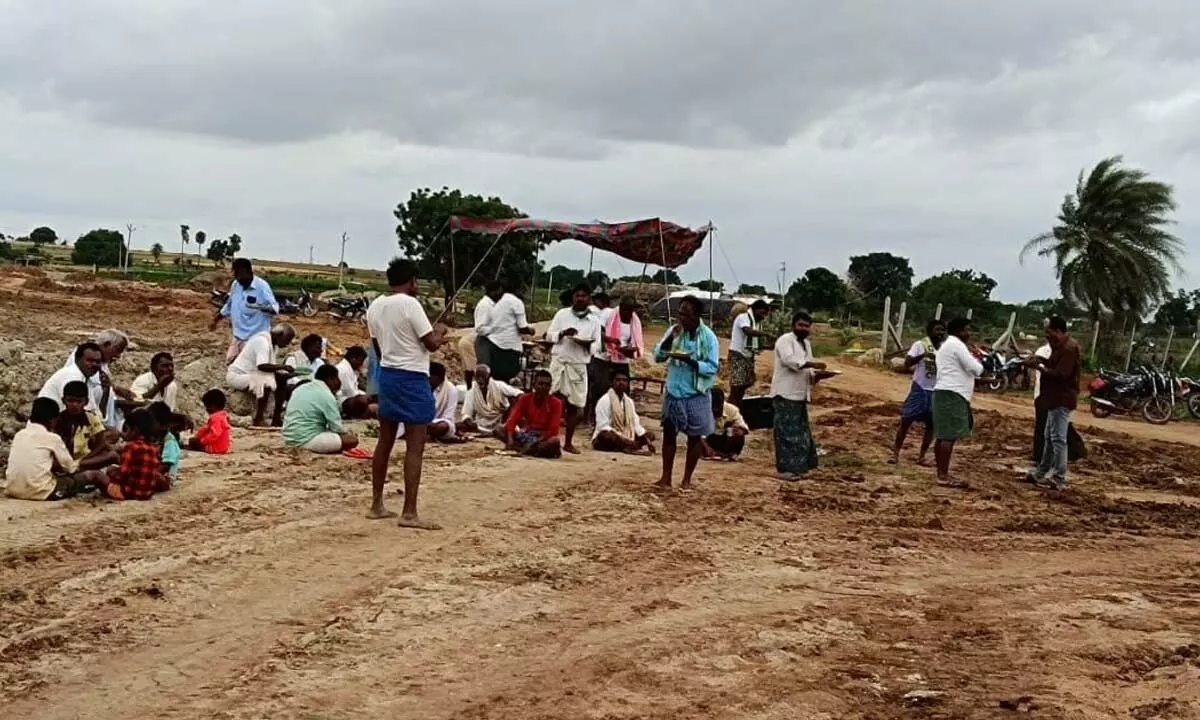
Issues in the Construction of NH 150 C: Farmers' Plight in Gadwal District.
Gadwal: Issues in the Construction of NH 150 C: Farmers' Plight in Gadwal District.
The Bharath Mala Pariyojana, a flagship infrastructure project of the Government of India, aims to boost the nation's economic connectivity through a six-lane economic corridor, National Highway 150 C, stretching from Sholapur to Chennai via Kurnool. This ambitious project, covering a distance of 707 km, traverses multiple states, including Maharashtra, Karnataka, Telangana, Andhra Pradesh, and Tamil Nadu. The corridor, a mix of brownfield upgrades and greenfield developments, is expected to be completed by December 2025 at an estimated cost of ₹15,000 crores.
However, the project, particularly the stretch from Raichur-Gadwal road to Julekal village, spanning 39.9 km, has faced significant hurdles, primarily concerning land acquisition and compensation distribution to the affected farmers.
Farmer's Concerns Over Compensation
The crux of the issue lies in the alleged negligence and mishandling of compensation by the local authorities. Farmers have reported that despite the initial promises of compensation for their acquired land, the distribution process has been fraught with inconsistencies and delays.
When the officials first approached the farmers, they assured a compensation amount of ₹475,000 as the first installment, with a promise of double the amount if the farmers opted for arbitration within a month. However, the reality has been starkly different. Farmers allege that they have been left to run from pillar to post in their attempts to secure the arbitration amount, with lower-level officials seemingly disregarding the orders of higher authorities, including the district collector.
Impact on Local Agriculture
The construction of the highway has also disrupted local agriculture, dividing farmland into two parts, often within the same survey number. This segmentation has forced small farmers to undertake lengthy detours to access their land on the other side of the highway. The absence of service roads and adequate underpasses exacerbates the issue, significantly impacting their daily operations and increasing their travel time and costs.
Protests and Pleas for Resolution
In response to these challenges, some farmers have resorted to protesting by attempting to halt the ongoing road construction. Their demands are clear: they seek the construction of service roads and sufficient underpasses to facilitate easy access to their agricultural lands. These infrastructural provisions are crucial for the welfare of the farmers, ensuring that they can continue their agricultural activities without undue hardship.
Appeals to District Authorities
The farmers have not remained silent in the face of these challenges. They have submitted petitions to the district collector, BM Santhosh, urging him to address the negligence of the revenue and land acquisition officials. They demand the swift release of their promised compensation and the construction of necessary infrastructural support to mitigate the adverse effects of the highway construction on their livelihoods.
Contractor's Standpoint
From the perspective of the highway contractors, the inclusion of service roads and additional underpasses was not part of the initial project plan. However, the legitimate concerns raised by the farmers highlight a significant oversight in planning, emphasizing the need for a more comprehensive approach that balances infrastructure development with the welfare of local communities.
The NH 150 C project, while promising significant economic benefits, has inadvertently created challenges for local farmers in the Gadwal district. The issues surrounding compensation distribution and the need for adequate infrastructural provisions like service roads and underpasses require immediate attention. The district authorities and NHAI officials must work collaboratively to resolve these concerns, ensuring that the project progresses smoothly without compromising the livelihoods of the affected farmers. Addressing these issues promptly will not only benefit the local communities but also pave the way for the successful completion of the Bharath Mala Pariyojana, fulfilling its vision of enhanced economic connectivity across the region.


